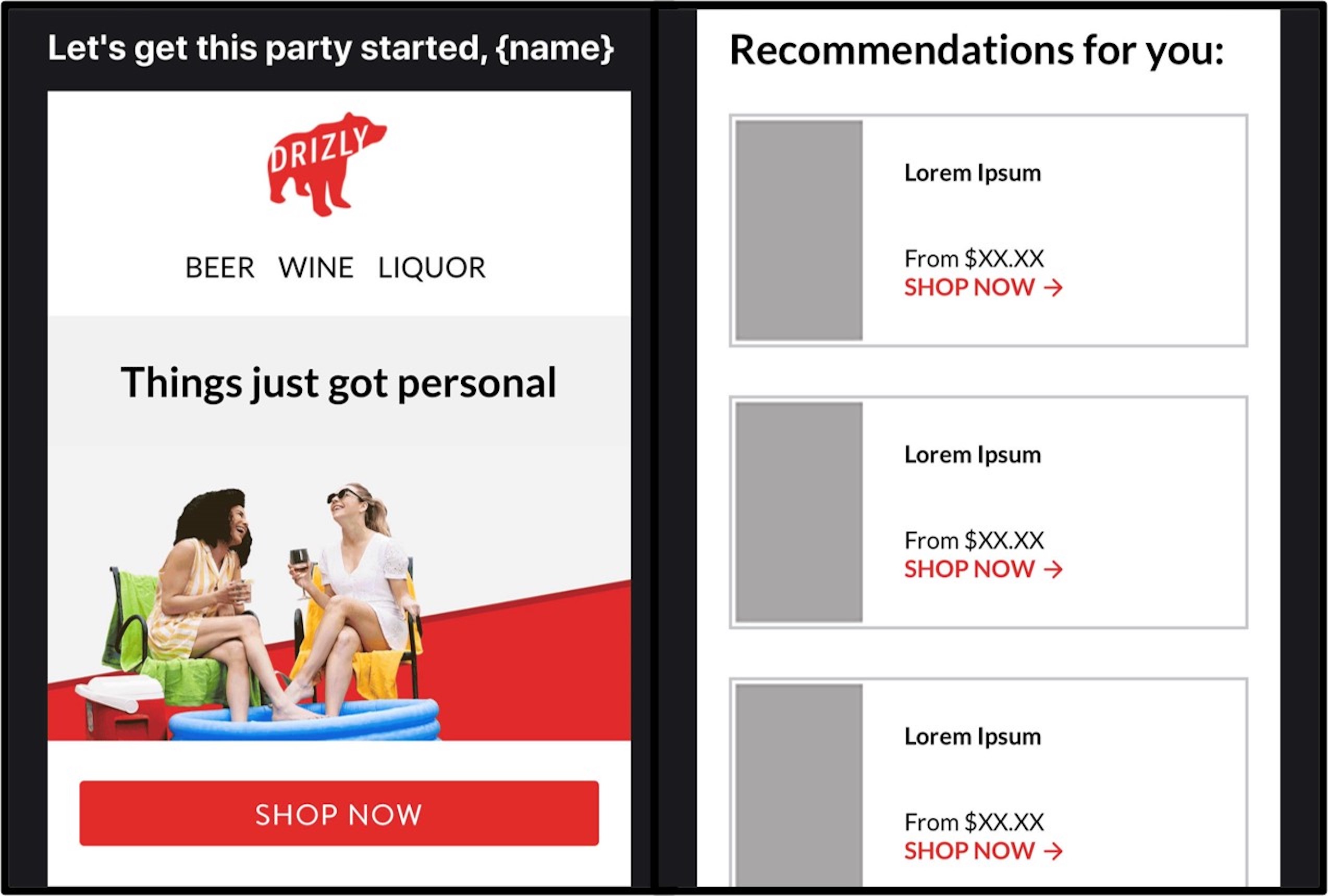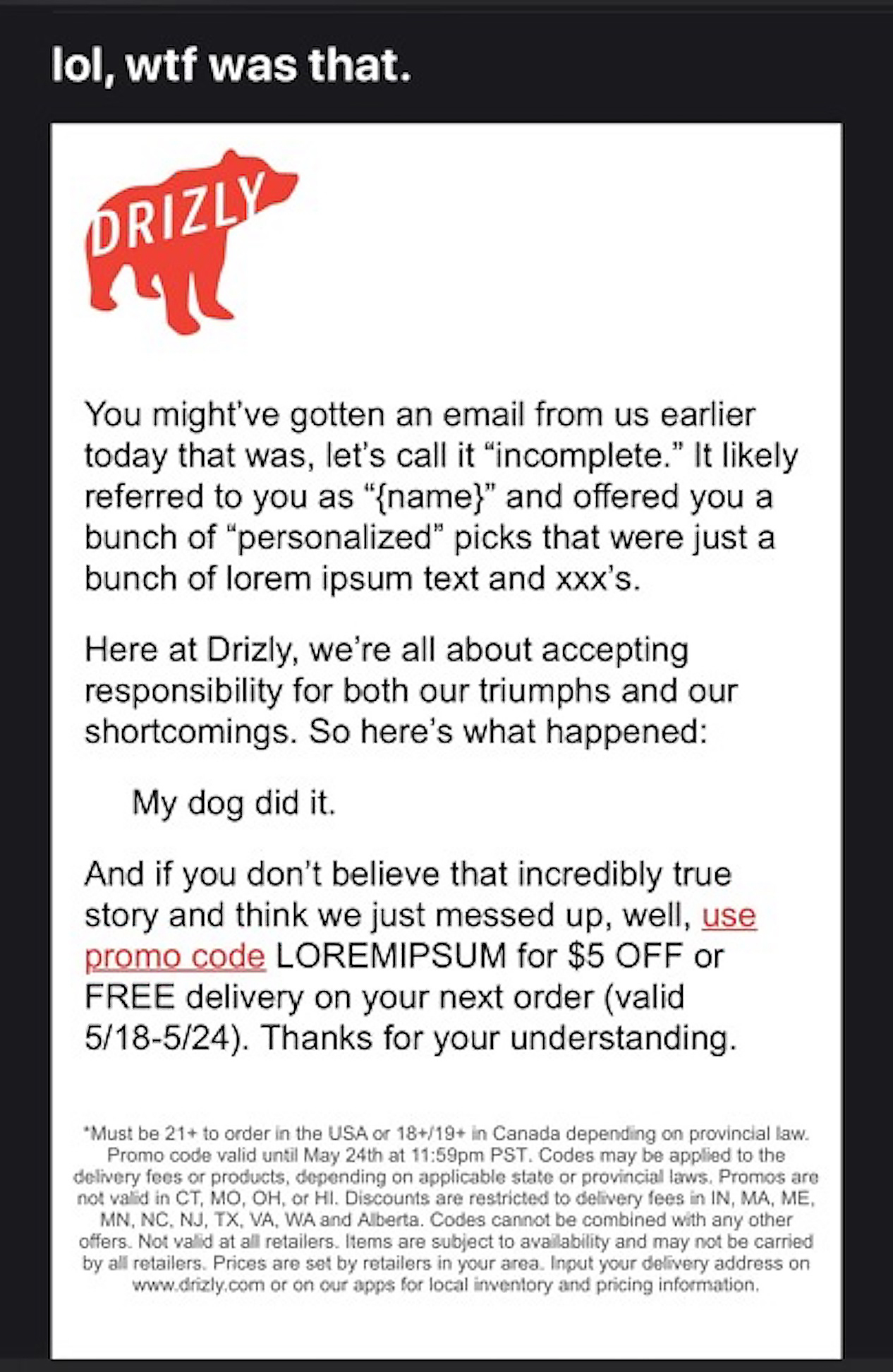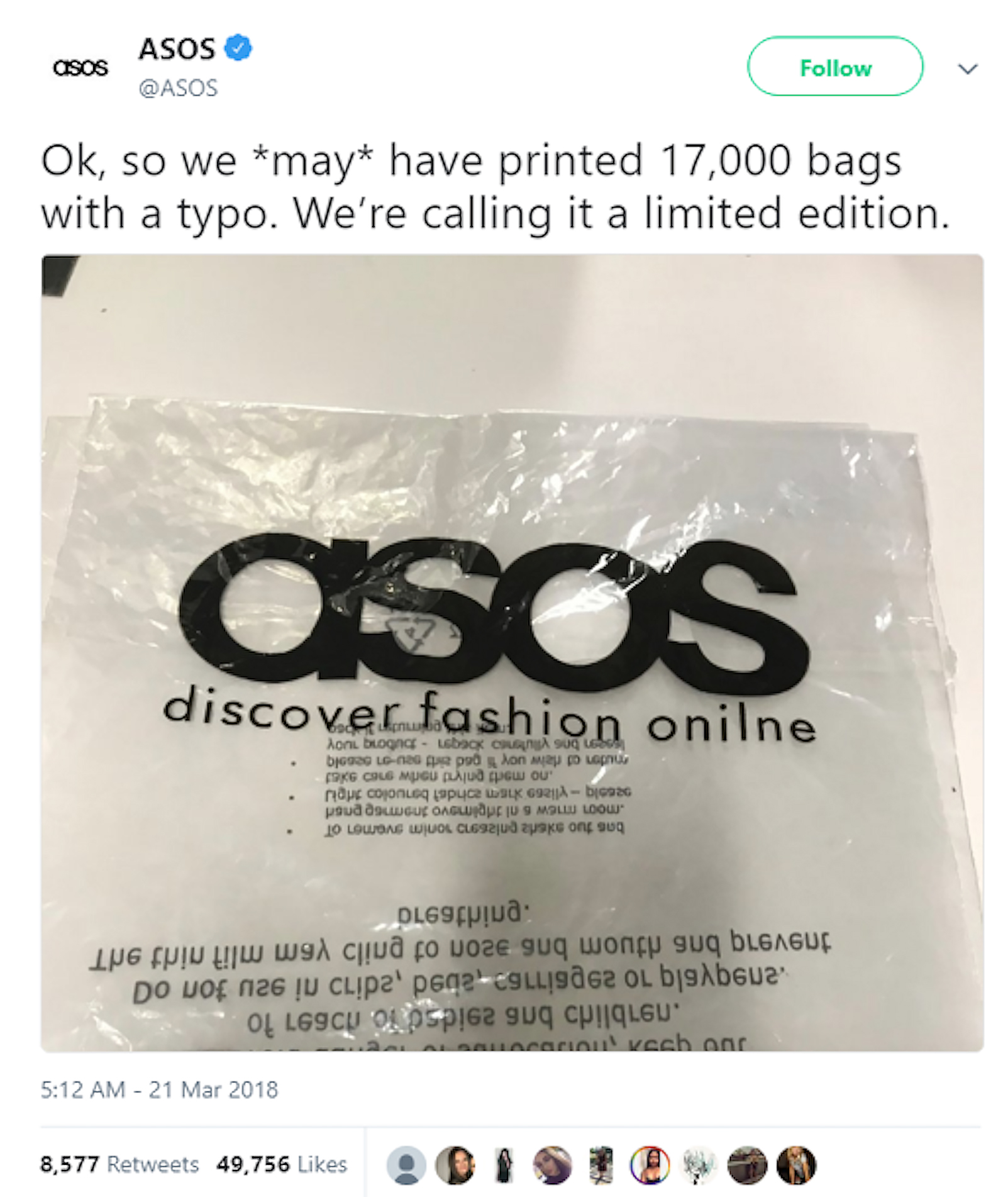
When brands make mistakes, they may be best served by following the advice of an American writer known for his inspirational maxims.
“To make mistakes is human; to stumble is commonplace; to be able to laugh at yourself is maturity,” wrote William Arthur Ward.
KFC took that advice to heart when it made perhaps the ultimate mistake for a chicken restaurant: it ran out of chicken. After the shortage forced the shutdown of hundreds of restaurants in Britain, the chain took a full-page ad in British newspapers.
Under a smiling Col. Sanders, the ad displayed an empty bucket with the KFC initials scrambled – to say “FCK.”
“A chicken restaurant without any chicken. It’s not ideal. Huge apologies to our customers,” read a message underneath.
One could say they didn’t chicken out of owning a mistake.
HBO Max also chose the light-hearted approach when it mistakenly sent out an empty test email to some subscribers. “We apologize for the inconvenience, and as the jokes pile in, yes, it was the intern,” the company tweeted, with a heart emoji. “No, really. And we’re helping them through it.”
Supportive “Dear Intern” missives flooded social media, including from perhaps the most famous former intern of all. “dear intern: it gets better. ps. don’t wear a beret for awhile, k?” tweeted Monica Lewinsky.
There is not only humor here but also a customer experience lesson. Brands will make mistakes, be they “oops” emails, errant tweets, or more serious reputational errors.
But customers understand there are humans involved, so they are willing to forgive. It’s all about how you handle the error.
And companies that own up to mistakes, especially in a self-deprecating, witty way, can turn what seemed like blunder into potential marketing gold.
Examples of Brands That Own Up To Mistakes
When online liquor store Drizly emailed out a list of “personalized” drink selections that were mistakenly written in gibberish placeholder text, their subsequent response was drizzled with online-style humor.
“lol, wtf was that.” began a follow-up email, which took responsibility for the mistake, joked that “my dog did it” and offered customers a promo code for $5 off or free delivery on their next order – with the code LOREMIPSUM, the quintessential placeholder text used by designers.


As one marketing expert raved: “Gotta love a recovery email that’s loaded with such humour you almost wonder if the goofup was the best thing to happen to them!”
Same with ASOS, a UK-based fashion company, which printed thousands of bags emblazoned with probably the most embarrassing possible typo for an online retailer; they misspelled the word “online.”
“Ok, so we *may* have printed 17,000 bags with a typo,” the company tweeted. “We’re calling in a limited edition.”
Feast your eyes on more than 8,500 retweets and nearly 50,000 likes. Nicely done.

Note: The two examples above, plus many more, are included in the book The Experience Maker: How To Create Remarkable Experiences That Your Customers Can’t Wait To Share, available on Amazon.
After a pet product company sent out an email mistakenly saying a local store was hosting an event, its response was, well, purr-fect.
Under a picture of sad-eyed bulldog-type dog laying with his tongue on the floor, the follow-up “oops” email pinned the blame on various animal accomplices. “The dogs say the cats did it, the cats say the dogs did it, and the fish aren’t talking,” it read, before making clear that “the humans” were apologizing.
Compounding Mistakes Can Be Costly For Brands
Even with all the companies that get it right after getting it wrong, some don’t – and dig themselves in even deeper.
One that stands out is Peloton, the exercise bike company, which came under fire in 2019 for an ad in which a man gives his wife a Peloton, implying that she needs to exercise. Perceived by some as sexist, the ad helped cause the company’s stock to drop.
In response, Peloton doubled down with a tone-deaf non-apology that declared the company was “disappointed in how some have misinterpreted this commercial.”
The Peloton approach was deeply flawed. Not only did the company refuse to acknowledge error, it essentially blamed the customer in a humorless way. That’s never a good thing.
Acknowledge Mistakes While Being Witty
Good customer experience means that brands should try to make amends for mistakes, even perceived ones, usually with a thoughtful, non-defensive apology.
If the expression of regret can be self-deprecating, all the better. KFC’s apology for its British chicken snafu, for example, won plaudits from marketing experts who said the chain would likely wind up with more customers rather than fewer.
Self-deprecation is a smart way to be witty, which is part of the WISER customer experience methodology – Witty, Immersive, Shareable, Extraordinary, and Responsive.
Witty is not about being funny, because humor can mean different things to different people. It does mean being clever, using language to your advantage, and refusing to be boring.
When companies make mistakes, as they inevitably will, some form of a witty do-over is generally the way to go. At the very least, your customers will respect you for respecting them enough to try.
Photo by Ben White on Unsplash with words by Dan Gingiss.
Dan Gingiss is a customer experience keynote speaker and the author of The Experience Maker: How To Create Remarkable Experiences That Your Customers Can’t Wait To Share, available on Amazon.
